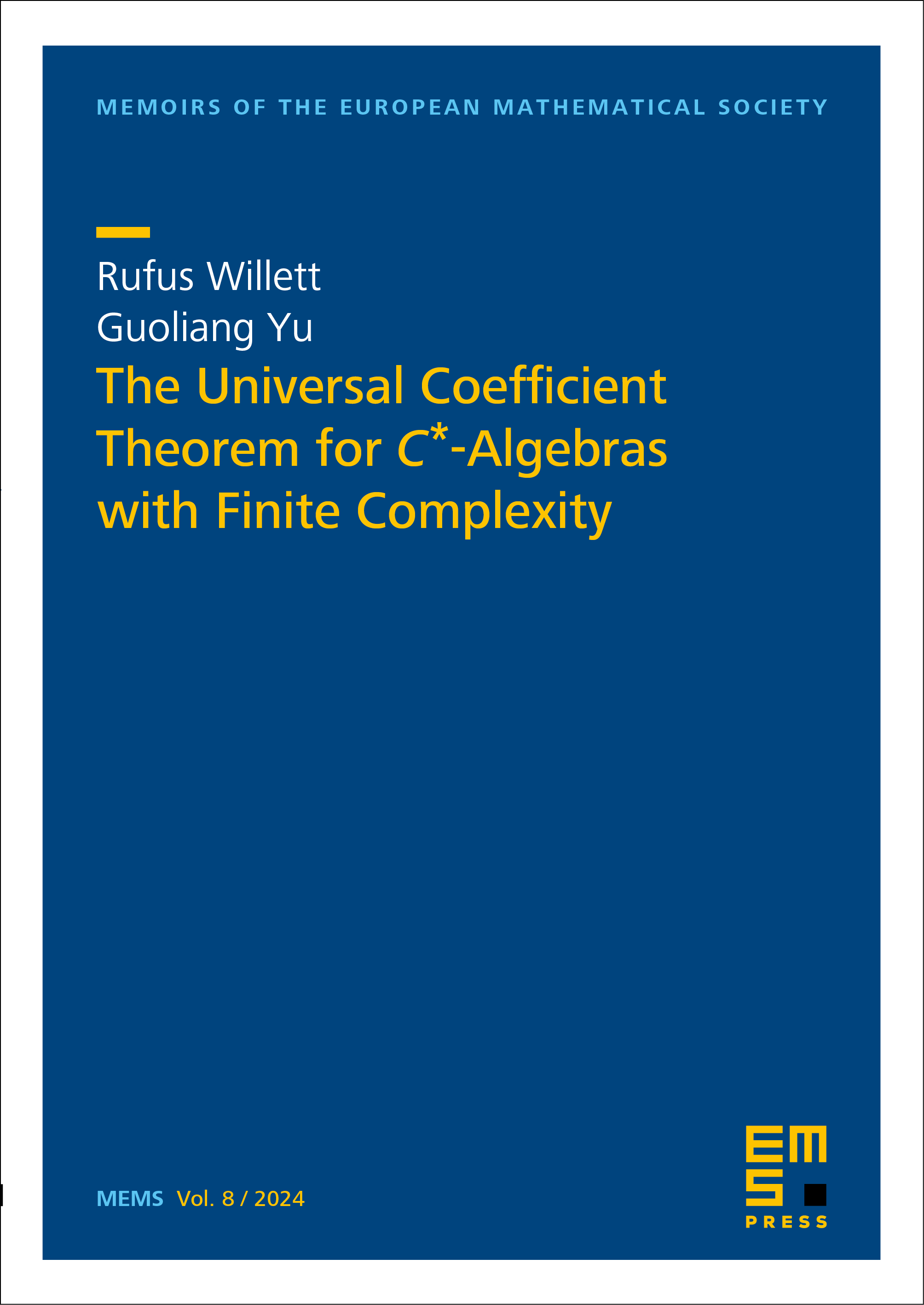The Universal Coefficient Theorem for -Algebras with Finite Complexity
Rufus Willett
University of Hawai'i at Mānoa, Honolulu, USAGuoliang Yu
Texas A&M University, College Station, USA

This book is published open access.
A -algebra satisfies the Universal Coefficient Theorem (UCT) of Rosenberg and Schochet if it is equivalent in Kasparov's -theory to a commutative -algebra. This paper is motivated by the problem of establishing the range of validity of the UCT, and in particular, whether the UCT holds for all nuclear -algebras.
We introduce the idea of a -algebra that "decomposes" over a class of -algebras. Roughly, this means that locally there are approximately central elements that approximately cut the -algebra into two -subalgebras from that have well-behaved intersection. We show that if a -algebra decomposes over the class of nuclear, UCT -algebras, then it satisfies the UCT. The argument is based on a Mayerr–Vietoris principle in the framework of controlled -theory; the latter was introduced by the authors in an earlier work. Nuclearity is used via Kasparov's Hilbert module version of Voiculescu's theorem, and Haagerup's theorem that nuclear -algebras are amenable.
We say that a -algebra has finite complexity if it is in the smallest class of -algebras containing the finite-dimensional -algebras, and closed under decomposability; our main result implies that all -algebras in this class satisfy the UCT. The class of -algebras with finite complexity is large, and comes with an ordinal-number invariant measuring the complexity level. We conjecture that a -algebra of finite nuclear dimension and real rank zero has finite complexity; this (and several other related conjectures) would imply the UCT for all separable nuclear -algebras. We also give new local formulations of the UCT, and some other necessary and sufficient conditions for the UCT to hold for all nuclear -algebras.